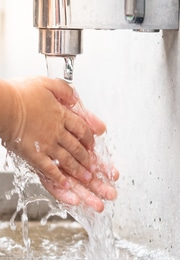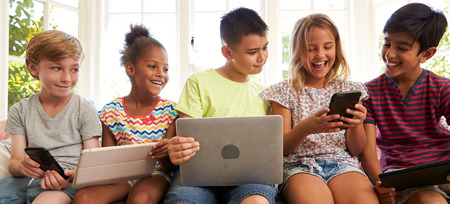6 Hygiene Tips Children Should Follow at School
Worried about your child catching a virus while in school? Most children are not as conscious about personal hygiene as they should be, which further increases their risk of illness. Teaching your kids the importance of proper hygiene will greatly help protect them from various illnesses like cough, cold, and fever.
Talk To Your Kids About Hygiene
One way to help our kids thrive in school is to keep them healthy. Teachers often discuss proper hygiene in the classroom, but it’s crucial for parents to constantly remind their children about it.
With some practice and a little guidance, you can help your child develop healthy habits wherever they go.
Tell them why hygiene is necessary and how they can get sick if they don’t practice them regularly. It can be difficult to get a child’s buy-in when it comes to health and wellness, so a little creativity can help.
For example, you can read them stories about hygiene to help them understand the cause and effect of practicing it.
Hygiene Starts With The Hands
Children can easily get exposed to germs and viruses when touching dirty surfaces and putting their hands on their faces.
One way to stop the spread of infections among schoolers is hand washing. It’s one of the most important hygiene habits that you should teach your child as early as possible.
Teach your child to wash their hands thoroughly with soap and water for at least twenty seconds.
Remind them to wash their hands before and after eating, after using the toilet, coughing or sneezing, or when playing on the school ground.
Let them carry a hygiene kit to school which contains antibacterial soap, wipes, hand sanitizer, and alcohol. In case they are not able to wash their hands, instruct them to apply hand sanitizer or alcohol.
Keep Hands Away From Eyes, Nose, And Mouth
Educate your child how germs can enter their body so they can keep their hands away from their eyes, nose, and mouth. Now, this can be a tricky habit to learn so you have to constantly remind them.
Provide your kids with tissue or a handkerchief they can use to scratch an itch without touching their face directly. Alternately, tell them they can only touch their face after hand washing or sanitizing their hands.
Also, try to keep their hair out of their face. Stray hairs tickle the face, causing an urge to touch their face frequently.
Limit Use Of Shared Objects
While you want your children to develop the value of sharing and caring, you also want to make them understand how germs and bacteria can spread quickly when they are touching surfaces and sharing objects like art supplies, cell phones, food, utensils, pencils, and personal items like combs and face towels.
If sharing snacks, pack them in separate ziplock containers so your child can just hand them over to their friends.
Cover Nose While Coughing Or Sneezing
Always remind your child to cover their nose and mouth when sneezing or coughing with tissue. Encourage them to use a handkerchief or wear a face mask.
Don’t forget to teach them to properly dispose of tissue and face masks, and then wash or sanitize their hands after.
Stay Home When Sick
If your child has a cold, cough, or fever, let them stay home and rest. They should also stay home if they have a contagious disease. It’s very hard to stop the spread of illnesses, especially in a school classroom where children are seated close to each other and are continually touching surfaces.
Disinfect Frequently Touched Surfaces
Teach your kids the right way to disinfect cell phones, tablets, water bottles, and other personal belongings regularly, especially once they arrive home. Consider spraying their bags and shoes with disinfectant too.
Give your child a ziplock bag where they can put used clothes, food containers, and other dirty items that need to be washed and sanitized at home.
Conclusion
Prevention is better than cure. Remind your children that although germs are not visibly present, they are everywhere – from air particles to frequently touched surfaces. Thus, they have to be extra conscious about proper hygiene so they won’t get sick and have more time for play and school.
Read about best hygiene practices in childcare.





 Explore the Safe Search Engine -
Explore the Safe Search Engine -